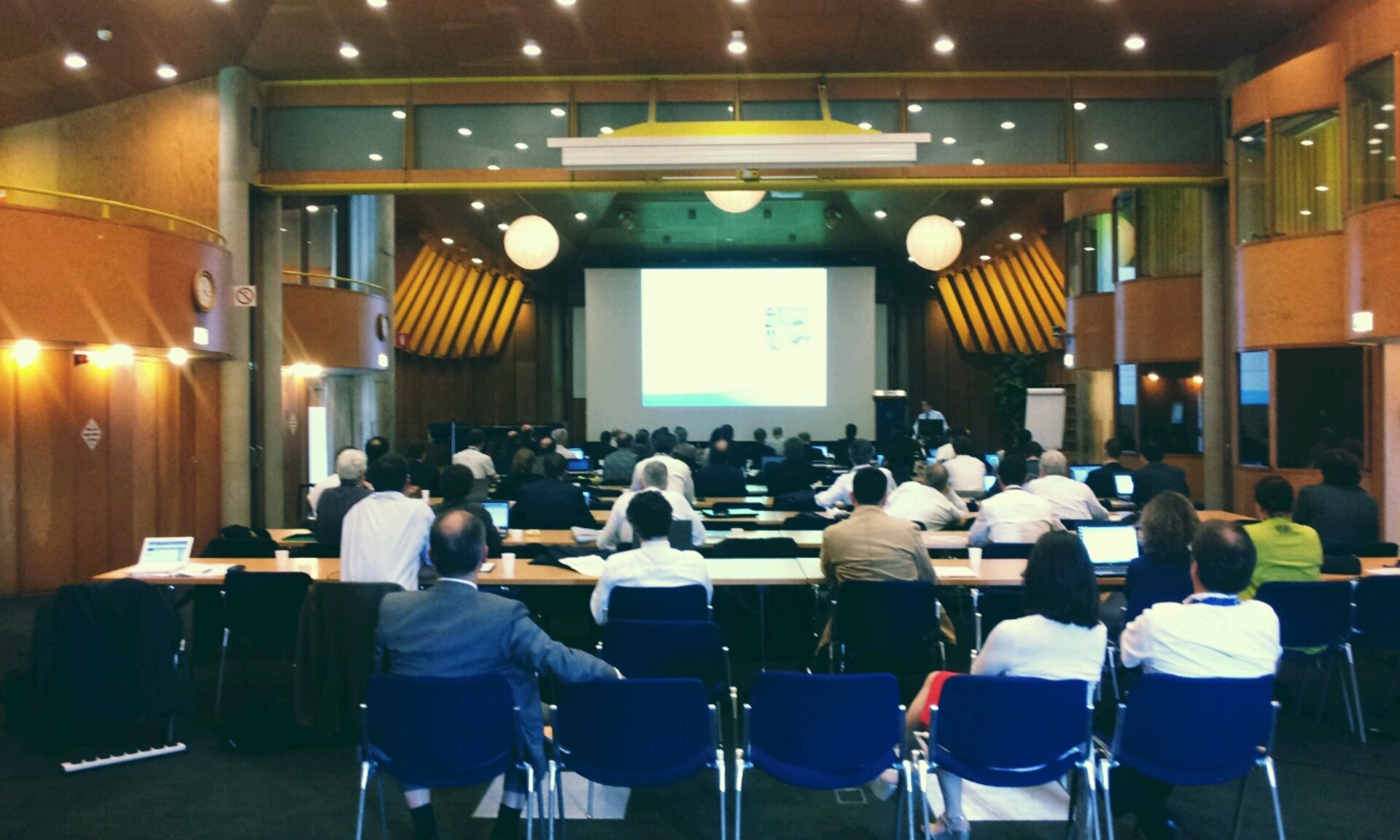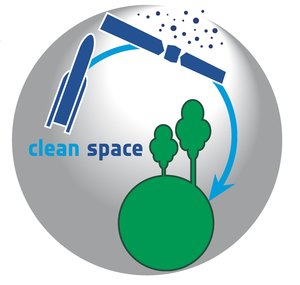ESA DG at Clean Space: Eco-design and Green Technologies workshop
The Clean Space: Eco-design and Green Technologies workshop was held at ESTEC, ESA’s main technical centre in Noordwijk, the Netherlands, on 20-21 June. ESA Director General Jean-Jacques Dordain addressed the audience in a keynote speech.
The workshop, jointly organised by ESA and Eurospace, aimed to bring together industry and professionals to network, collaborate and discuss new developments in the fields of eco-design and green technology. More than 100 participants from the European space sector attended the event.
Expert guest speakers gave valuable insight and interactive forums were set up to foster active participation on five topics addressed in the initiative: life cycle assessment, the European Commission’s ‘REACH’ industrial chemical registration regulation, sustainable technologies and in particular green propulsion, and debris mitigation.
The team behind 'Clean Space' presented their main objective, to offer a pro-active answer to environmental challenges on Earth and in space, and highlighted their activities as well as those carried out by the space industry in Europe.
The large number of industry representatives in the audience and among guest speakers revealed a real interest in the Clean Space initiative.
Transcript of ESA Director General Jean-Jacques Dordain's speech:

I am glad to be here this afternoon. I promised to be present as I wish to convey my conviction that ‘clean space’ is an important matter, and not just one programme among many others at ESA. The fact that there are so many of you here today is an indicator that clean space is important for the whole community. It is important not only for the space sector, but also for the future of planet Earth. Indeed, space will be key to the future of Earth, and so its importance goes beyond the programme.
I also wish to thank all those who have put effort and energy into making the clean space drive a successful one and this workshop a reality.
We are living in difficult times. Economic difficulties and fear for the future are prevalent. There is increasing competition among the priorities for investment in the future. When we talk about space, we talk about investment in the future. More and more candidates are claiming they are a priority for investment. Indeed space must now reach beyond its usual scope. Its importance will be measured in terms of its value to the economy and to society, and no longer in terms of missions, projects, and so on.
When I meet ministers for space, I am asked to help demonstrate that space is important for the economy and for society. Such requests are now coming from all countries, so we need to clarify the value of space. I know that I have believers here in front of me, you do not need convincing. However, although we are sure that space is useful, we need to be consistent and serious when it comes to expressing our convictions. Our belief in space and its significance has three consequences:
- If there is economic and societal value in space infrastructures, then we must protect them. We must protect them from natural threats (space weather) and man-made threats (debris). Threats to our space infrastructure are increasing; we regularly have to perform avoidance manoeuvres to avert collisions with debris.
- If space infrastructure is essential for understanding the climate and the environment, then the least we can do is ensure that it is not itself a threat to climate and environment.
- If we are convinced that space infrastructure will become more and more essential, then we must transmit the space environment to future generations as we found it, that is, pristine.
So, we are convinced, but we have duties and must be consistent. Thus, the three objectives of clean space are: protect space infrastructure, be environmentally friendly, and keep space clean. We can therefore say that clean space is not a new programme, but instead a new way of designing all of ESA’s programmes. I would like ESA to become a model agency in this respect, which is why it is one of the top 10 priorities in Agenda 2015. I would like clean space to be a culture, not only at ESA, but in the whole of Europe. It is a bottom-up approach, and will have to be adopted from the base, as a culture cannot be imposed on anyone. Clean space will entail a new culture. It will not be easy to change the mindset, particularly in a successful organisation. Where there is success, there is resistance to change, though that is a positive sign: where there is resistance, there is movement. We will not succeed alone; we will need everyone’s help. The entire space sector has to be behind us.
This is what clean space means to me, and we have no alternative but to be successful in developing this new culture. The future of space activities is the future of life on planet Earth. I would like to explain how we have organised our actions into 4 branches:
- Eco design, REACH compliance and design tools;
- Green technologies, and green propulsion, electronics etc., that will comply with new legislation;
- Debris mitigation: design solutions to mitigate debris production, which particularly addresses the question of how to manage the end of life of satellites and programmes;
- Debris reduction: solutions to clean up current debris pollution in orbit, i.e. Active Debris Removal. Clean space is now part of the techno programme proposal, as a cross-cutting initiative. We will continue in this direction. This is more than just a new programme.
On active debris removal: ESA has started feasibility studies to remove Envisat from polar orbit. It is not that we have a fixation about Envisat, but at least we are very familiar with Envisat, and since our goal is a credible study, it is better to have a target that we fully understand. We are not especially guilty either, as we are not the only ones with a satellite stranded in polar orbit, but we do have unique capabilities (docking, manoeuvring, etc.) that make the approach we are taking credible. We will then initiate discussions on a global scale on the question of debris removal. We do consider ourselves to be very credible on this initiative.
Conclusion: clean space will increase the value of all the activities we undertake at ESA, and beyond that, clean space provides a response to 3 major concerns:
- In which fields can Europe take on leadership? Clean space is one.
- In which fields can the green economy make sense?
- In which fields can we restore consensus and solidarity in Europe? Clean space can restore consensus and solidarity among governments, and among people.
This is why clean space is important to me. I wish you a very constructive workshop.






